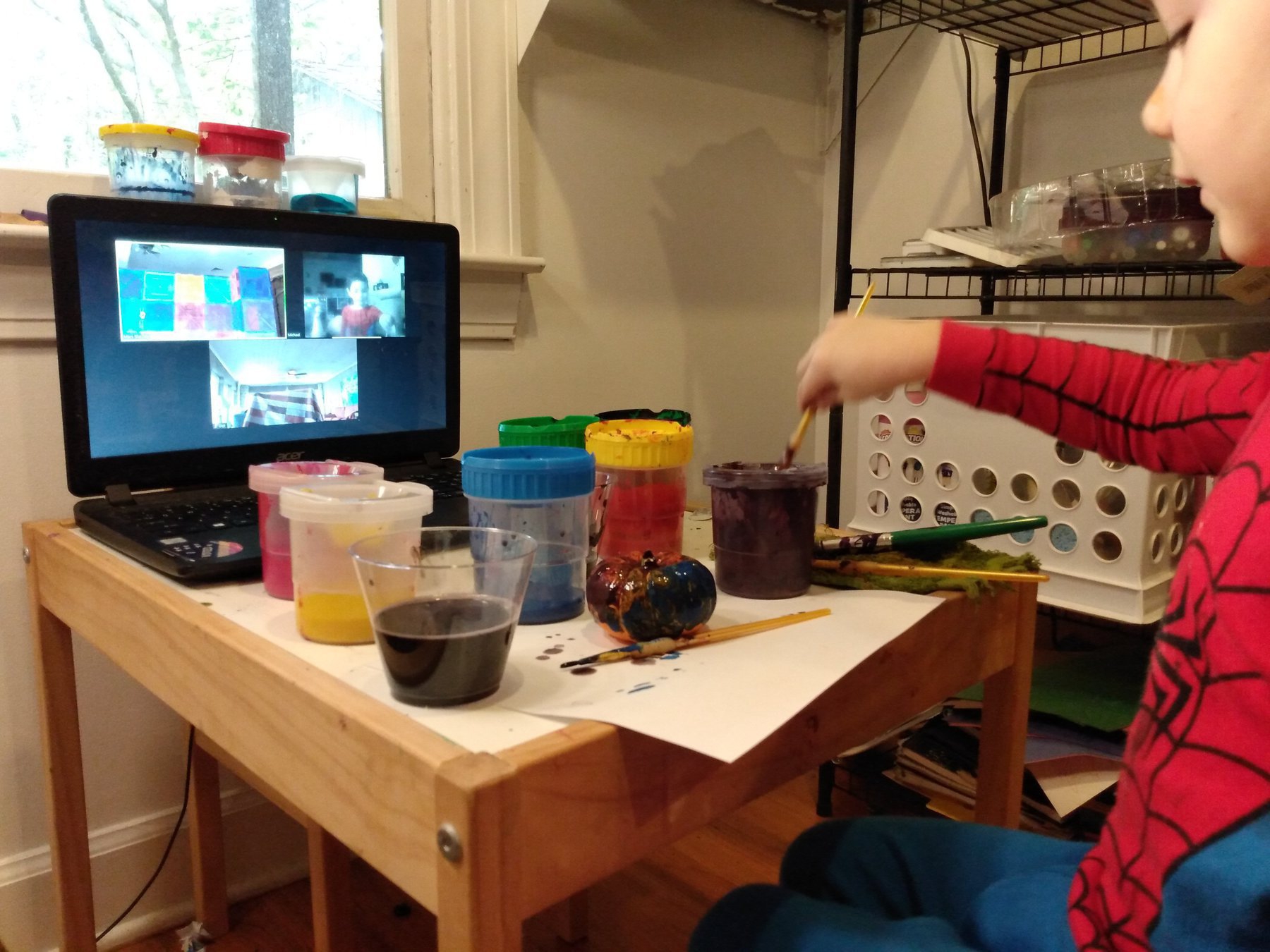It feels like submitting my dissertation has freed up an immense amount of space in my head and heart to start thinking about other things. I’m so excited about so many possibilities right now. I bought a bunch of sewing supplies, but my sewing machine thwarted me. It needs a thorough cleaning and oiling, and then I can try sewing again.
I’m back on the Artist’s Way train, doing “morning” pages that are really afternoon pages because the only quiet I can get is during childcare time, and that’s in the afternoon. (I could switch this to morning but it would disrupt some standing meetings I have, so I’m leaving it as-is for now.)
I’m reading John Scalzi’s You’re Not Fooling Anyone When You Take Your Laptop to a Coffee Shop and it has me feeling energized about writing.
I’m reading Jess Zimmerman’s Women and Other Monsters: Building a New Mythology and it’s phenomenal. I only annotate textbooks, so all my notes from this are commonplace-book style in my Bullet Journal and there are so many of them. Pages and pages.
I’ve got a stack of books about mending on hold at the library. I’m really thrilled at the thought of mending things. My kid’s favorite clothes get holes in them. I’ve got some leggings and pajama pants that could use a good mend. But mostly I love how this feels like a personal step toward sustainable living. Of course we should hold institutions and businesses accountable for their role in promoting sustainability, but that’s not a good reason to not even think about it myself. One day I’ll be able to go in thrift stores again without worrying and I really hope that by then I can start to see the things I find for their possibilities rather than just what they already are. I can dye things! Cut them up! Refashion them! Woohoo! Psyched to get this stack on Saturday and I expect I’ll write more about these things as I read them. (I’ve got a few web links about this, too; maybe I’ll put together a little guide.)
I’m thinking about writing a post or page that is essentially a digital care package for new parents: my favorite books, online resources, and tips related to parenting. You learn so much in the first few years (and more later I trust, but I’m only half way through year 5 so I can only talk about the first 4 and a half years or so). It seems a shame to just sit on that knowledge, or to only pass it on to people in little bits and pieces. Wouldn’t it be cool to just point people to a webpage? I think it would.
Come to think of it, I know little bits about all kinds of stuff. Maybe I should write a BUNCH of guides. One about cupcakery. One about producing community theater or local comedy. What else?
Helping people is kind of my favorite thing.
I’ve now taken an hour and a half of childcare time as runway time, so I suppose I should get down to work.
Anyway, welcome spring! LET’S DO ALL THE THINGS!
